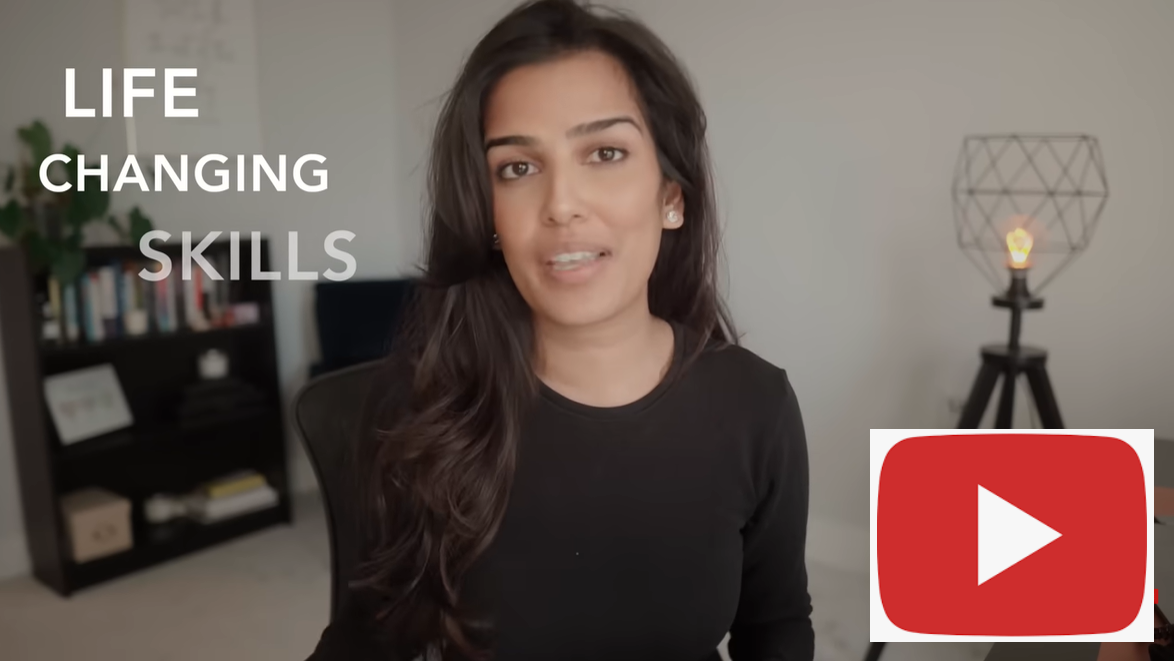Money Management Tips
|
Start Now
Starting something new can seem overwhelming. If working on any of these steps ever feels overwhelming, remember that doing something is almost always better than doing nothing. Don't be afraid to get started, do a little, and then take a break if you feel stressed. While you're away you're likely to think about everything and then come back later and make more progress. Start this effort right now! Even five minutes of effort now will pay off in the future. Then set a goal to make progress each day, week, or month; whatever makes sense for you. And stick to it! |
|
Watch Some YouTube videos
The YouTube videos listed below provide an easy way to start thinking about how to budget and manage your money. |
Note: There are tons of YouTube videos that can help you budget and manage your money. You may want to watch more of them, and you may find some that are lots better than the ones I've suggested. If you find a good one, tell me about it!
|
|
Create a first draft list of your monthly income and expenses by using this Income and Expenses Worksheet
|
Suggestion: Use pencil (and an eraser as needed) if you print the worksheet, because you'll probably want to make changes as your thinking evolves. Be sure to update the information on the Worksheet each time you think of more items.
|
|
Start thinking about your financial goals by using this Financial Goals Worksheet
Financial goals can relate to just about anything. Here are some random examples:
|
Suggestion: Use pencil (and an eraser as needed) if you print this worksheet, because you may want to make changes as your thinking evolves. Feel free to update this information often.
|
|
Consider options for saving money each month.
If your long-term goals require you to save money before you can achieve them, add those goals to your list of Expenses on your “Income and Expenses Worksheet”. To start you can list the expense as “$0.00” each month. |
Example: If you want to buy some AirPods, but don’t have enough money to purchase them now, you may want to set aside some money each month for this purpose so that you can buy them eventually.
|
|
Make plans for your excess cash or figure out if you can avoid spending more than you earn.
If you have a “Monthly Cash Surplus” listed on your “Income and Expenses Worksheet”, add an Expense to this Worksheet labeled “Savings” and enter the amount of your Cash Surplus. Or you can add multiple expenses and be more specific about your plans for saving money. Then re-calculate the figures on the worksheet. If you have a “Monthly Cash Shortfall” listed on your “Income and Expenses Worksheet”, ask yourself how you can reduce your expenses or increase your income. Examples might be “Eat out less often”, “Find a cheaper place to live”, “Find another job”, “Ask for a raise at work”, “Get a roommate to help share living expenses”, or “Spend less money on clothes”. |
Example ways to reduce your expenses or increase your income:
|
|
Adjust your budget to move in the direction of living your best life
The key to financial security and peace of mind is keeping your Income higher than your “Need” Expenses. This is rarely something that happens by accident, but it’s usually possible once you learn how to budget your money. Learning to spend less money than you earn is a skill, and you’ve already done a lot of the hard work required to make it a reality by creating a budget and thinking about your financial goals. Once you have even just a little extra money each month, you can use that money to establish an emergency fund that can help you manage unexpected expenses or a job loss. You can also use extra money to meet short-term and long-term financial goals or even to help others. If your current budget doesn’t show that you have any extra income each month, try to think about some ways you could reduce your expenses. |
Note: Many people recommend that an emergency fund of $1,000.00 is a good goal for an adult to start and then eventually adults should try to grow the fund so it covers 3-6 months of living expenses in case you ever experience a job loss (because 3-6 months is often enough time to find another job).
Example ways to reduce your expenses:
|
|
Next Steps
Now that you have spent time thinking about how much money you earn and spend each month, your financial goals, and things you can do to control how much you earn and spend, you’re on your way to managing your money strategically (and making sure that your money isn’t managing you). If you like the idea of thoughtfully managing your money in order to live your best life, you can explore ways to increase your income by developing more skills employers seek (and are willing to pay for), explore more ways to manage your money, learn about investing money (which can become another source of income and help you have a more enjoyable retirement), and donate money to those in need. There is tons of information available on these topics, and you can find a lot of it online. If you’re not sure where to start, try asking a librarian, teacher, or trusted friend or relative who appears to be financially secure. About investing ... Some people find out that it is Easier Than They Think to manage their own investments after they Gather Input (and decide for themselves). And some people like to get help from a professional (e.g. Level Up Financial Planning). Here's another link worth exploring: |
Short Stories about:
|
Are there apps that help you figure this stuff out faster?
If so, please let me know which one(s) you like!
Contact Kathy
If so, please let me know which one(s) you like!
Contact Kathy
Wondering why this info is here?
Answer: I was asked to document some money management tips for a local organization (where I volunteer). Later a young friend asked me a financial question, and it occurred to me that this info would be helpful, so I've posted it here for easy access in the future.
Answer: I was asked to document some money management tips for a local organization (where I volunteer). Later a young friend asked me a financial question, and it occurred to me that this info would be helpful, so I've posted it here for easy access in the future.

















